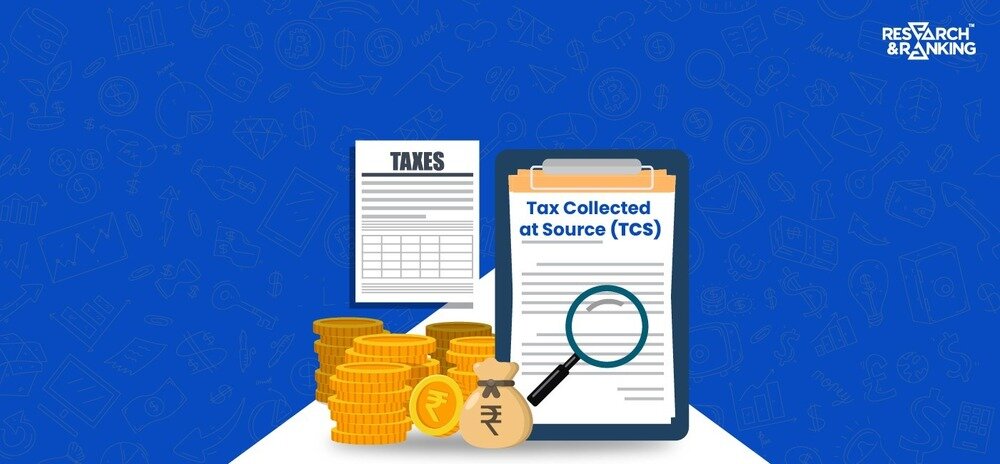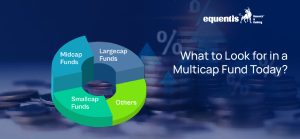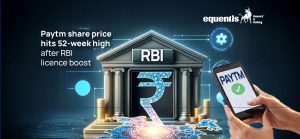Introduction
Have you recently bought a car, bike, or necklace? You feel happy and proud, right? But there is a catch. You have to pay an extra tax called TCS or Tax Collected at Source in addition to other taxes on your purchase. And you can’t just pay it later or forget about it. You have to pay it according to the applicable TCS slab rates right away to the seller.
The Budget 2023 raised Tax Collection at Source (TCS) on foreign remittance through Liberalised Remittance Scheme (LRS) to 20% from the existing 5%, except in certain cases. This news caught the attention of people, with everyone trying to understand more about TCS.
This article will cover everything you must know about TCS, from TCS slab rates to TCS compliance penalties and everything in between.
What is Tax Collected at Source (TCS)?
TCS, or tax collected at source, is a mechanism to collect tax from the buyers of specific goods and services at the time of sale. TCS applies to various items, such as scrap, minerals, forest produce, liquor, jewelry, motor vehicles, etc. The Tax Collected at Source rates vary depending on the nature and value of the transaction
The seller is responsible for managing and depositing the tax with the government and issuing a TCS certificate to the buyer. The buyer can use the TCS certificate to claim credit for the tax paid against their income tax liability.
TCS means tax collected at source, which means that the seller of specific goods and services must collect tax from you, the buyer, during a sale and pay it to the government. The seller must also provide a TCS certificate showing the tax you paid and where it went. Every clause, from Tax Collected at Source rates to its exemptions, compliance, penalties, etc., is covered under Section 206 C of the IT Act 1961.
The Tax collected at Source rates depends on what you are buying and how much it costs. An example will help us grasp this idea more clearly. Say, you buy a car worth more than Rs. 10 lakhs; you have to pay 1% of the price as TCS. So, if your car costs Rs. 15 lakhs, you have to pay Rs—15,000 as TCS to the seller, who will then pass it on to the government.
List of Goods or Transactions Covered under TCS and applicable Tax Collected at Source Rates
TCS is not applicable when manufacturing, processing, or producing the goods listed below. It is only applicable when the goods are purchased for trading purposes.
The seller collects TCS at the point of sale by the list of Tax Collected at Source rates provided below.
| Type of Transaction/Goods | TCS Slab Rates |
| Alcoholic Liquor for Human Consumption | 1% |
| Timber obtained under a forest lease | 2.5% |
| Any Timber that is not acquired through a forest lease | 2.5% |
| Products from Forests (other than timber or tendu leaves) | 2.5% |
| Scrap | 1% |
| Minerals like lignite, coal and iron ore | 1% |
| Purchase of Motor vehicle exceeding Rs.10 lakh | 1% |
| Parking, tolling and digging for minerals and rocks | 1% |
| Tendu leaves (bidi wrappers) | 5% |
| Overseas Tour Program Package | 20% (40% if PAN/Aadhar are not provided) |
| Remittance under Liberalised Remittance Scheme or LRS of RBI (for medical treatment/education purposes) | 5% of Remittances over Rs. 7.00 Lacs during the relevant FY(10% if PAN/Aadhar not furnished) |
| Remittance under LRS for purposes other than Education/Medical Treatment) | 20% of the Remittance (40% in case PAN/Aadhar is not furnished) |
| Education Loan-financed remittance to study abroad | 0.5% of the remittance over Rs. 7 Lacs in the relevant FY( 5% in case PAN/Aadhar is not provided) |
| Sale of goods exceeding Rs.50 lakh in a year by a seller having a turnover of more than Rs.10 crore in the previous year | 0.1% (1% in case PAN/Aadhar is not provided) |
When Higher Tax Collected at Source Rates are Applicable
Let’s now discuss the cases covered under Section 206CCA in which the buyer has to pay higher Tax Collected at Source Rates than those discussed above.
Case 1: When the buyer has not filed his ITR return for two consecutive financial years before the relevant financial year in which TCS is to be collected.
Case 2: The time limit for filing your ITR returns has expired.
Case 3: Aggregate TDS and TCS in each of the two consecutive financial years exceeds Rs. 50000.
The payable Tax Collected at Source Rates, in such cases, will be the highest of the two rates-
- Two times the applicable Tax Collected at Source Rates specified by the IT Act (please refer to the table given above for the applicable TCS slab rates)
Classification of TCS Buyers and Sellers as Defined U/S 260 IT Act
Generally, only the trading transactions where the goods are purchased for reselling are considered.
But who are the sellers and buyers to calculate the Tax Collected at Source Rates? How are they defined under the Income Tax Act? Let us find out.
Sellers
According to Section 260 of the Income Tax Act, a seller is any person who sells any goods or grants any right to receive any goods on which TCS is applicable. The seller must have a Tax Collection Account Number (TAN) to collect and deposit TCS.
The seller can be any of the following:
- Central Government
- State Government
- Local Authority
- Statutory Corporation or Authority
- Company registered under the Companies Act
- Partnership firm
- Co-operative Society
- Any person or HUF who is subject to an audit of accounts under the Income Tax Act for a particular financial year
Buyers
According to Section 260 of the Income Tax Act, a buyer is any person who obtains any goods or the right to receive any goods on which TCS is applicable. The seller will collect TCS at a higher rate from the buyer unless the buyer gives his PAN to the seller. The buyer can be any person except for the following:
- Public Sector Company
- Central Government
- State Government
- Embassy of High Commission
- Consulate and other Trade Representatives of a Foreign Nation
- Various clubs, including Sports Club and Social Club
- Local Authority for purchase of a vehicle
Thus, TCS is applicable only when there is a sale or transfer of goods or rights between a seller and a buyer as defined under Section 260 of the Income Tax Act. The seller and the buyer have certain obligations and rights under this provision, which they must comply with to avoid paying any penalty or interest.
Rules for TCS exemptions
The applicable Tax Collected at Source rates can sometimes be exempted. Here are some of the rules for TCS exemptions-
- TCS is not applicable when the goods are used for personal consumption by the buyer.
- TCS is not applicable when the buyer uses the goods for manufacturing, processing, or production and not for trading purposes. The buyer has to furnish a declaration to the seller and the tax authorities for this purpose.
- TCS is not applicable when the buyer is a public sector company, central government, state government, embassy, consulate, club, or local authority to purchase a vehicle.
- TCS is not applicable when the sale of goods or services through an e-commerce platform and the supplier is liable to pay GST on such supply under Section 9(5) of the CGST Act. For example, hotel accommodation, radio taxi, housekeeping services, etc.
- TCS is not applicable when the sale of goods is made by a seller whose turnover does not exceed Rs.10 crore in the previous financial year, and the sale consideration is at most Rs.50 lakh in a year.
TCS Tax Filing Dates
The buyer can claim credit for the TCS paid against their income tax liability. The filing dates for the TCS return are as follows-
| Quarter Ending | Due Dates for filing return | Due Dates for Generating Form 27D |
| June 30 | July 15th | July 30th |
| September 30 | October 15th | October 30th |
| December 31 | January 15th | January 30th |
| March 31 | May 15th | May 30th |
TCS Compliance Checklist
The seller has to comply with various rules and regulations under the Income Tax Act and the GST Act for TCS. Here follows a comprehensive TCS compliance checklist-
- The seller has to obtain a Tax Collection Account Number (TAN) and register under GST as an e-commerce operator.
- The seller must collect TCS at the specified TCS slab rates from the buyers on the net taxable value of the goods or services sold online.
- The seller has to deposit the TCS collected at the applicable Tax collected at Source rates every month by the 7th of the next month, except for March, where the due date is April 30th, using Challan 281.
- The seller has to file a return of TCS every quarter and issue a certificate to the buyer within 15 days from the due date of filing the return in form 27EQ.
- The seller has to issue a TCS certificate in Form 27D to the buyer within 15 days from the due date of filing the return.
- The seller has to reconcile the TCS collected and deposited with the TCS reported in the returns and rectify any discrepancies or errors.
TCS Compliance Penalties for Non-deposit of TCS
If the seller fails to deposit the TCS collected according to the applicable Tax Collected at Source Rates, TCS Compliance penalties imposed will be as follows:
- In the event of a delay in the deposit of TCS, interest at 1% per month or part of the month is charged in addition to the TCS amount that he fails to collect.
- Under Sec 271 CA of the IT Act, the defaulting person would be liable for TDS compliance penalties equal to the amount of tax liable to be collected.
- Under Sec 276BB of the IT Act, the defaulting person will also be liable for prosecution and imprisonment of up to 7 years.
Key Takeaways
TCS is one of the important provisions under the Income Tax Act that aims to widen the tax base and improve tax collection. Tax Collected at Source Rates is the rate at which a seller collects tax from the buyer on certain goods or transactions and deposits it with the government. TCS is a way of collecting tax at the source of income and ensuring buyer tax compliance.
Knowing TCS implications is crucial because it affects the seller and buyer’s cash flow and tax liability. If TCS is not collected or deposited correctly, the seller and buyer will have to pay penalties and interest on the unpaid amount. Therefore, it is advisable to be aware of the TCS provisions and comply with them diligently
FAQs
When is TCS collected from the Buyer?
The seller has to collect TCS at the specified Tax Collected at Source rates from the buyer at the time of sale or receipt of payment, whichever is earlier-
For example, if a seller sells scrap worth Rs. 1 lakh to a buyer, he has to collect TCS at 1% of Rs. 1 lakh, i.e., Rs. 1000 from the buyer. The seller must collect the TCS when he debits the buyer’s account or upon receiving payment from the buyer, whichever happens first.
What is the applicable Tax Collected at Source Rates under GST?
Tax Collected at Source Rates for goods covered under GST are as follows-
● 1% of the net taxable value of intra-state supplies (0.5% for CGST and 0.5% for SGST)
● 1% of the net taxable value of inter-state supplies (1% for IGST)
● 2% of the net taxable value of supplies made by notified suppliers through notified e-commerce operators (1% for CGST and 1% for SGST)
Read more: How Long-term investing helps create life-changing wealth – TOI.
How useful was this post?
Click on a star to rate it!
Average rating 4.7 / 5. Vote count: 3
No votes so far! Be the first to rate this post.
I’m Archana R. Chettiar, an experienced content creator with
an affinity for writing on personal finance and other financial content. I
love to write on equity investing, retirement, managing money, and more.
- Archana Chettiar













